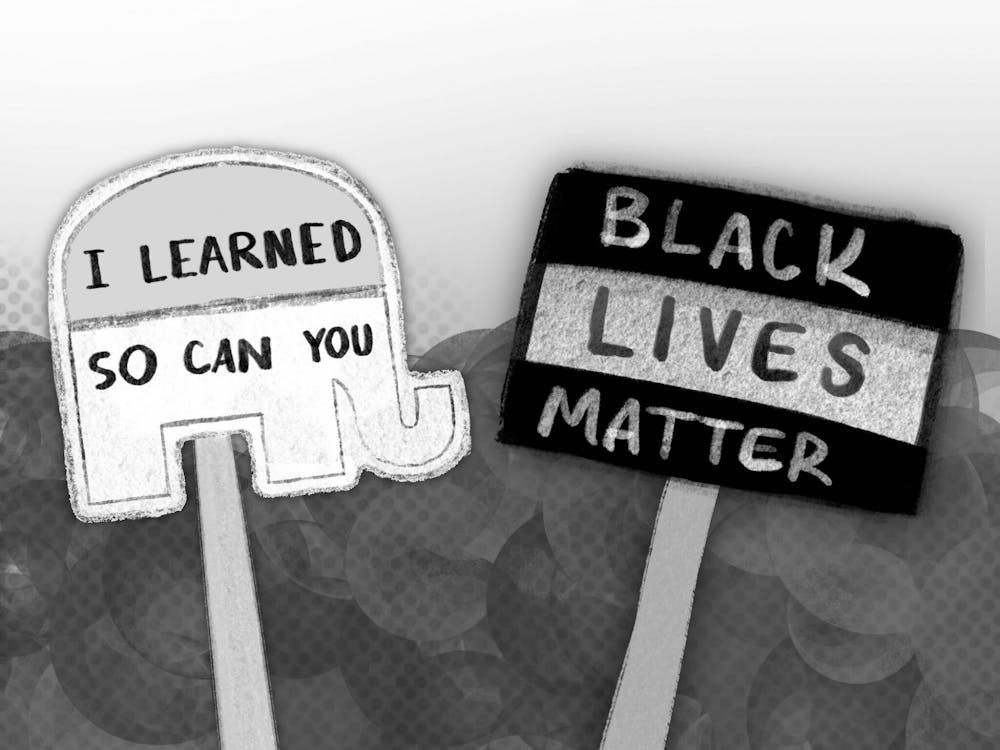You’ve probably seen some variation of the “unfollow me if you don’t support Black Lives Matter” post on social media in recent weeks, almost always posted by a white person, at least in my feed. While I understand the urge to cut people out of your virtual or real life if they do not understand Black Lives Matter, this attitude doesn’t help anybody.
We live in a fundamentally white supremacist society that politically, economically, aesthetically, socially and psychologically rewards whiteness. We are all individually responsible for being more ethical than the society that raised us.
But if your family has not raised you to be anti-racist — most white people can’t see or don’t acknowledge continuing racial injustice due to colorblind narratives that start in childhood — and your friend groups and neighbors agree with you, where do you start, especially if everyone posting “woke” things on your feed is saying you’re beyond help?
There are three reasons that white disengagement from online racism is problematic. First, as this Instagram post argues, it exempts the person posting it from confronting racism and from using their privilege to begin to change someone’s mind. Those conversations are anti-racist actions which we should commit to, not just on social media but in our predominantly white homes, classrooms and workplaces.
Second, it reduces those people’s exposure to anti-racist ideas and closes them off from change, whether or not they ever discuss the posts. In other words, your infographic about systemic racism has more potential to help your implicitly or explicitly racist followers than it will for your “woke” friends.
Third, it implicitly asserts that no one ever had to help you overcome a bias or problematic behavior or belief. Maybe that’s true, but most of us have needed help at one point or another.
In my high school paper’s newsroom, I was the only conservative person as far as I can recall. The product of a Fox News devotee household, I entered high school holding views I now believe are deeply problematic.
Instead of treating me with hostility, my peers engaged with me about what I believed when politics came up in the newsroom — so, every day. I often felt embarrassed, not because they were hostile, but because they often showed me logical and factual flaws in my belief system.
I don’t remember all of the things I said, but looking back, I’m sure some of them were rooted in inexcusable ignorance of systemic and overt racism. It was uncomfortable and frustrating for me, and I’m sure it was uncomfortable and frustrating for my friends.
By the time my dad and I got home from our last-minute trip to the Iowa caucuses in February 2016, I knew that it was no longer accurate to call myself conservative. My friends’ willingness to enter into discomfort left nagging doubts that became impossible to overcome. However, I wasn’t willing to admit that I had been wrong or to confront what to do about it.
For over a year, I continued to behave in writing and in conversation as if my beliefs hadn’t changed. When I look back, I am ashamed not because I had to grow and change, but because I refused to admit that I had done so. Looking back at those disingenuous pieces I wrote is much harder than looking back at pieces I disagree with but that my former self argued in good faith.
If you are a reader in a position like I was, remember that you don’t owe the world a gradual shift. Continuing down a path you believe or suspect is wrong for the sake of your pride is not worth it. Admit that you were wrong, change course and commit to doing better. Remember: Google is free.
If you are a reader in a position like my friends were, remember that “ally” should be a verb, not a self-proclaimed label. Discomfort is a fundamental part of progress and therefore a fundamental part of allyship, no matter what type of bigotry you are confronting. Something you can do in this moment to make the world better is to try to bring other white people around to anti-racist ideas and actions, even though it would be easier to simply disengage.
As Ray Bradbury asserts in “Fahrenheit 451,” “If you hide your ignorance, no one will hit you and you’ll never learn.” Plenty of people aren’t bothering to hide their ignorance. The least you can do is hit them.
Kaitlyn Radde (she/her) is a rising junior studying political science. She plans to pursue a career in public interest law.






